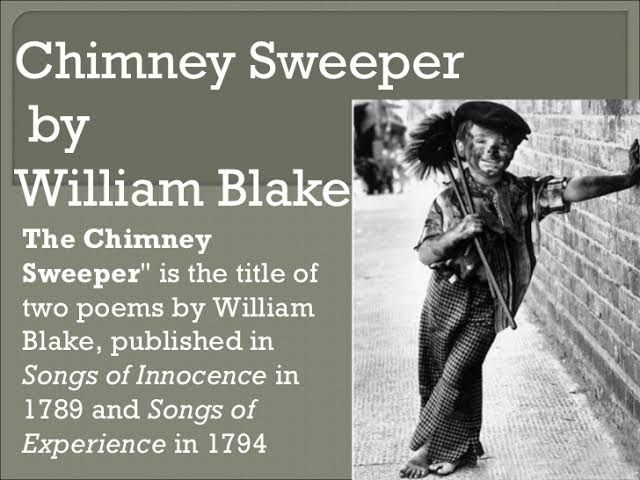The Chimney Sweeper Of The Songs Of Experience
Jun 29, 2019 • 84 views

William Blake's "The Chimney Sweeper" of 'The Songs of Experience' is about the life of young London children, who are forced to clean chimneys of affluent households and earn money to survive the poverty.
As opposed to The Chimney Sweeper from 'The Song of Innocence', The Chimney Sweeper plunges straight into the dismal and depressing reality leaving the readers disturbed after knowing the plight of the children. Children as young as 4 years old, which is the ideal size to climb up the chimney, are involved in this activity and the society exploits their vulnerability to the greatest possible extent.
The poem emphasizes on the child's thoughts in the most honest and raw form. It mocks at the irony on many different levels. A child by nature is full of playfulness and innocence. In the brief moments of relief that the child can sneak from its chimney sweeping chore, the child switches to its carefree self and dances and sings to look happy. This is manipulated and misunderstood by the child's own parents and society at large. They think that the child is actually happy and ignore conveniently the effects of such a burden on the child.
This turns even more depressing as the child is himself pointing out the irony. His own parents are oblivious to the child's misery. The irony continues, only in an aggregated form in the lines that follow.
While the child is cleaning chimneys, the ignorant parents are praising God and visiting the church. This simple fact raises many questions. Are the parents feeding off the child's hard work? Do the parents choose not to work, because they have a source of income through their child? Praying and visiting the Church are clearly seen as more crucial activities than hard work to earn money honestly. The excess importance attached to things other than working hard was a root cause of many problems in society.
The child is well aware of the 'Heaven' that the Priests and Kings enjoy, are built and maintained at the expense of blood and sweat of small children like him. The sadder truth remains that, parents of the same children frequently visit and rever the same Priests and Kings instead of protecting their children from such an adverse condition.
The poem signifies how the entire society functions as a parasite to exploit the most vulnerable faction. By being subjected to such extreme and harsh realities, the children lose their innocence and are forced to enter the world of experience and hostility at a tender stage.
Blake is careful to highlight and contrast the Chimney Sweeper of Experience and Innocence. Here any ray of hope is absent and the reality is a long narrow tunnel, with no light at its end. There is no scope of being saved and relieved, and the children seem to have long accepted this hopelessness. The poem highlights the plight of lower class families, who are forced to resort to such extreme conditions and part with the love they have for their own children.
